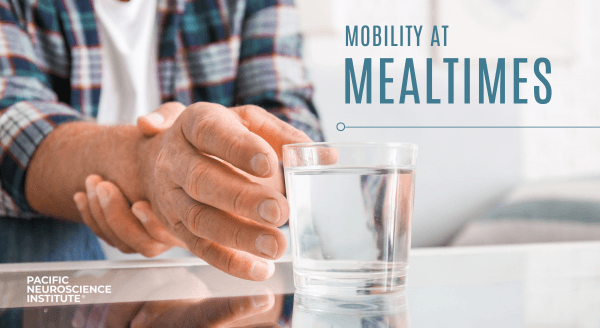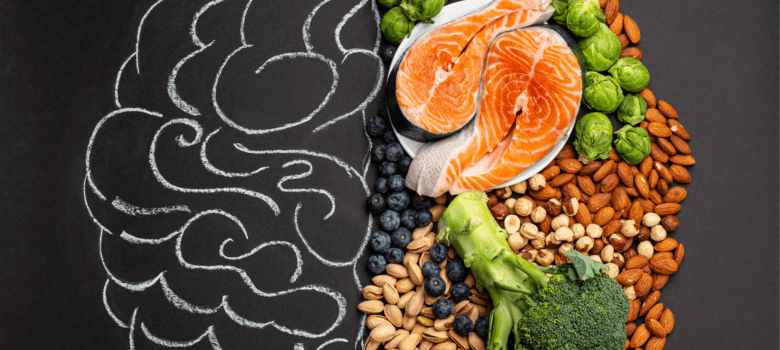
Blog
How to Make Mobility at Mealtime Easier for Older Adults
by Mihae Kim
When it comes to caregiving for older adults with conditions that impact mobility like stroke, neuromuscular disorders, severe arthritis, or Parkinson's disease, mealtime can be particularly challenging. However, there are several strategies that can ease this process and enhance safety, comfort and independence for the individual needing care, as well as their caregivers.
Avoiding Dementia Risks
by Verna Porter
Breaking the habit of sedentary behavior is a powerful step toward reducing dementia risk. Pairing this with other lifestyle modifications—such as exercise, a healthy diet, quality sleep, and social engagement—creates a comprehensive approach to brain health. Learn more.
Alzheimer’s: What You Need to Know | Scott A. Kaiser, MD – Guest Podcast
by Anthony Effinger
This episode joins Dr. Scott Kaiser as he delves into the complexities of Alzheimer’s disease, exploring its causes, treatments, and the holistic approaches that can help patients and families maintain quality of life in the face of cognitive challenges.
Exercise is Fertilizer for the Brain | Dr. David Merrill – Flashback Episode
by Anthony Effinger
Exercise doesn’t just strengthen your body—it powers up your brain too. Dr. David Merrill, director of PNI’s Brain Health Center, explains that physical activity boosts brain-derived neurotrophic factor (BDNF), a protein that helps neurons grow and connect, supporting learning and memory. While BDNF isn’t available in a pill, exercise naturally increases its levels, promoting brain plasticity and resilience. Regular workouts keep your brain sharp and adaptable, especially as you age.
What is the MIND diet?
by Molly Rapozo
The MIND diet aims to reduce dementia and the decline in brain health that often occurs as people age. It combines aspects of two well-researched diets, the Mediterranean Diet and Dietary Approaches to Stop Hypertension (DASH).
Maximizing the Benefits of our Aging Populations
by PNI Experts
For the first time in human history, the world will be inhabited by more people over the age of 65 than under 18. What does this Great Age Wave mean and what are the implications? Find out more.
Dual Tasking to Keep Your Brain (and Body) Fit as You Age | Ryan Glatt, MS, CPT, NBC-HWC
by Anthony Effinger
Ryan Glatt, a certified personal trainer and health coach, underscores the importance of dual tasking for enhancing brain and body health as we age. Activities like dance and interactive video games, which challenge both mental and physical faculties, can mitigate dementia and improve balance. Gain expert insights and motivation from Ryan by tuning in to this episode.
The Impact of Hormonal Imbalances on Neurological Health and Memory
by Zara Jethani
An imbalance in hormone levels can contribute to several neurological conditions, with memory loss being a prominent associated symptom. Learn more.
Brain Health Tips for 4th of July
by PNI Experts
Learn how to protect your brain health when watching fireworks, enjoy foods cooked on the grill, and avoid undue stress if you have a neurodegenerative disease.
Forget-Me-Not
by Zara Jethani
David Merrill, MD, PhD, Director of the Brain Health Center at Pacific Neuroscience Institute®, was honored by OPICA at the 2024 Annual Forget-Me-Not Luncheon. OPICA Adult Day Program & Counseling Center has been serving older adults affected by memory loss and their families for over...
Last updated: July 2nd, 2024





